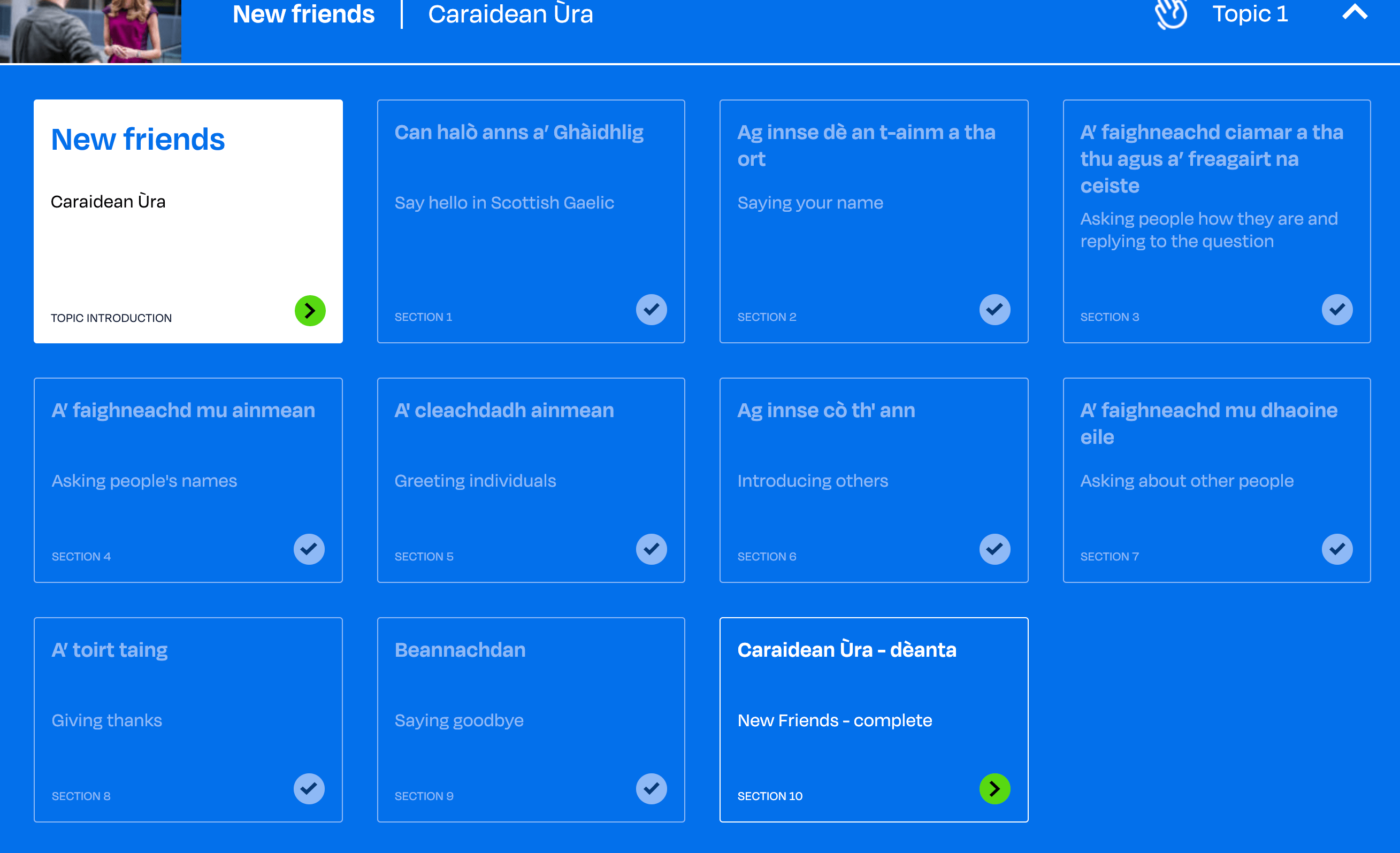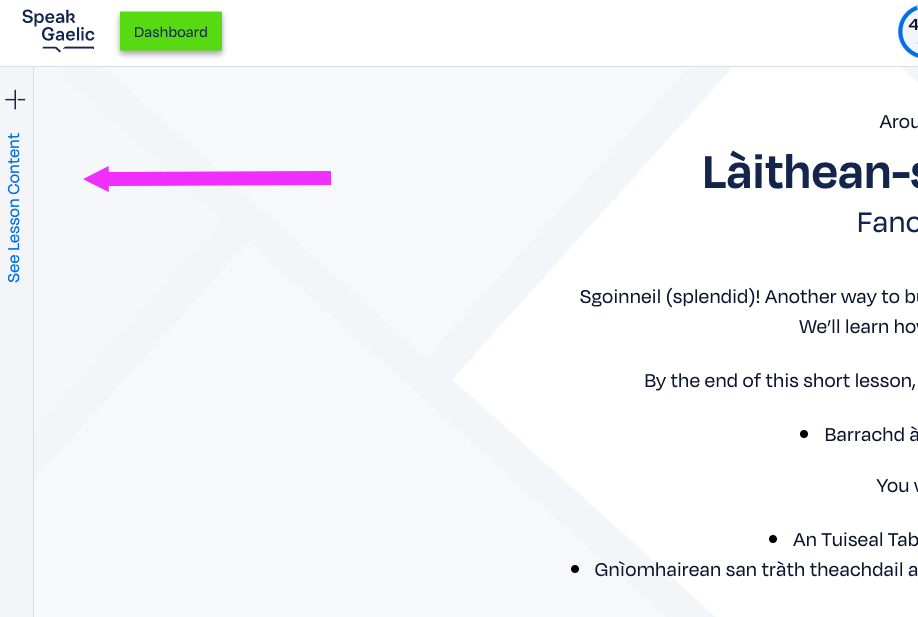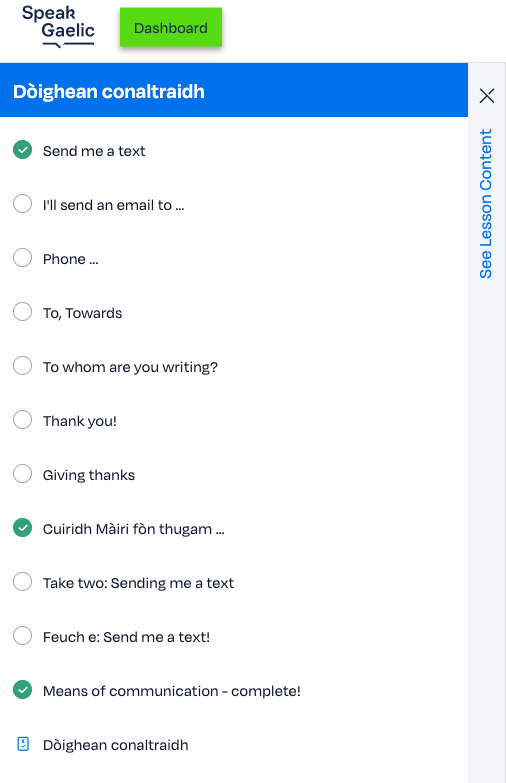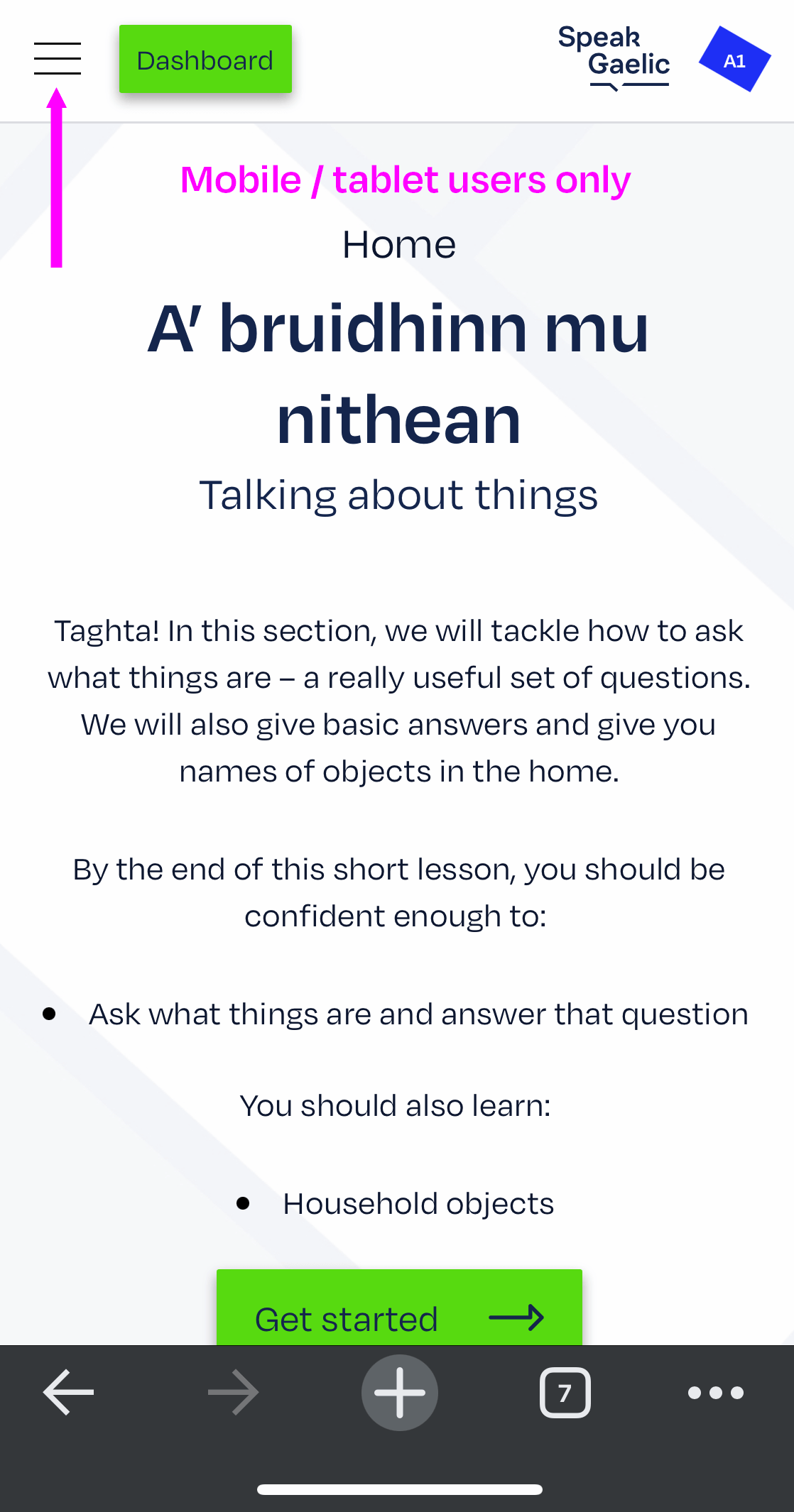Àireamhan pearsanta le ainmearan
Personal numbers with nouns
You’ll remember that in A1 Cuspair 4 of SpeakGaelic we looked at the numbers used to count people, up to deichnear (ten people). These can be used on their own in response to a question:
Cia mheud bràthair a th’ agad?
How many brothers do you have?
Tha triùir agam.
I have three.
But they can also be used with nouns. When the personal number comes before a noun, the noun takes the genitive plural form:
Cia mheud bràthair a th’ agad?
How many brothers do you have?
Tha dithis bhràithrean agam.
I have two brothers
Cia mheud piuthar a th’ agad?
How many sisters do you have?
Tha triùir pheathraichean agam.
I have three sisters
aonan
1 person
dithis (f)
2 people
triùir (f)
3 people
ceathrar
4 people
còignear
5 people
sianar
6 people
seachdnar
7 people
ochdnar
8 people
naoinear
9 people
deichnear
10 people
With àireamhan pearsanta (personal numbers), the rules for plurals are the same for masculine and feminine nouns. The main rule for genitive plurals is that the word should have a broad ending. This means that words which form their plural by slenderising, for example bodach → bodaich, do not slenderise in their genitive plural form. Indefinite genitive plurals always lenite where possible. Both dithis and triùir are feminine, so they cause lenition of nouns or adjectives which follow them.
| Tha dà bhràthair agam. | → Tha dithis bhràithrean agam. | I have two brothers. |
| Tha trì bràithrean agam. | → Tha triùir bhràithrean agam. | I have three brothers. |
| Bha còig bodaich ann. | → Bha còignear bhodach ann. | There were five old men. |




